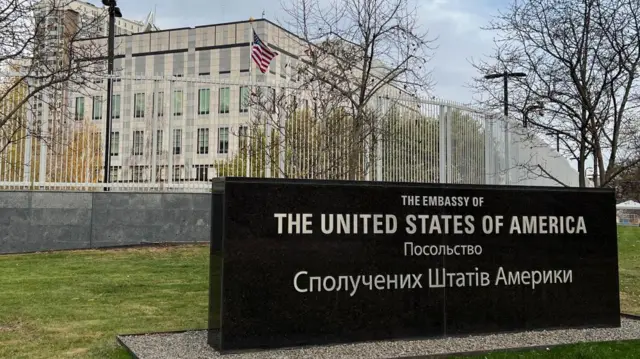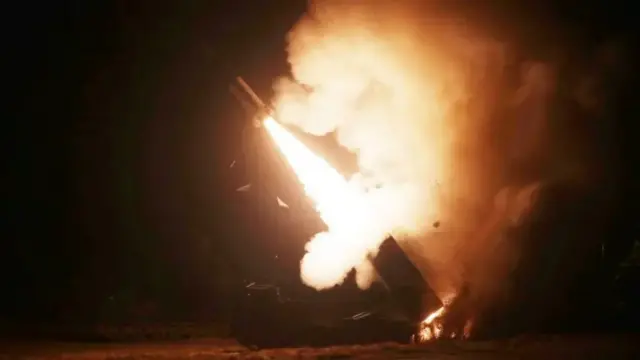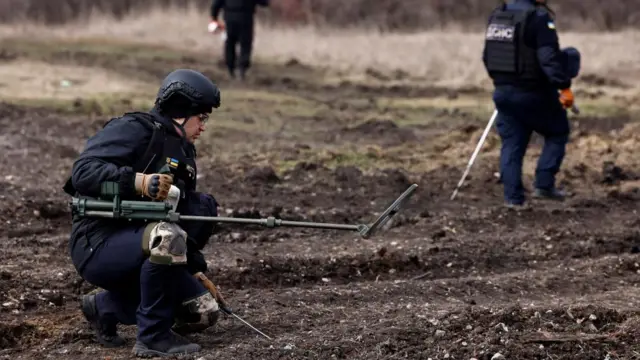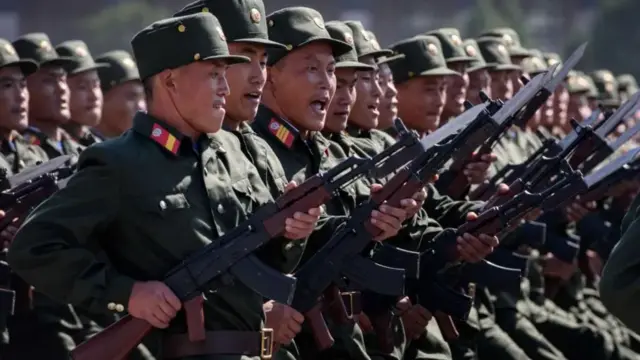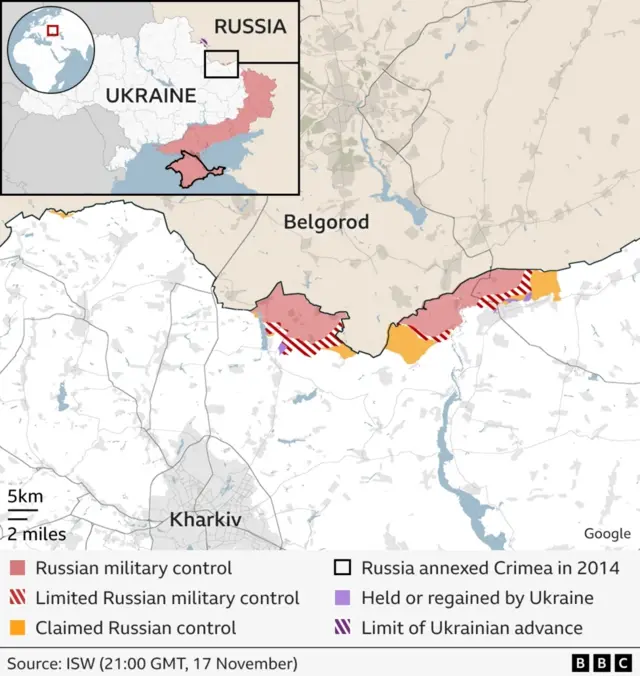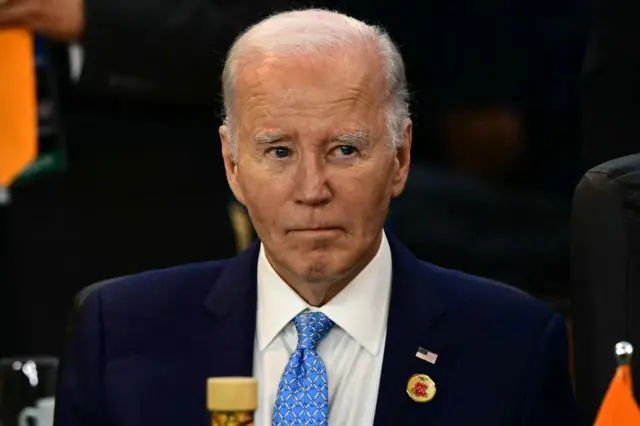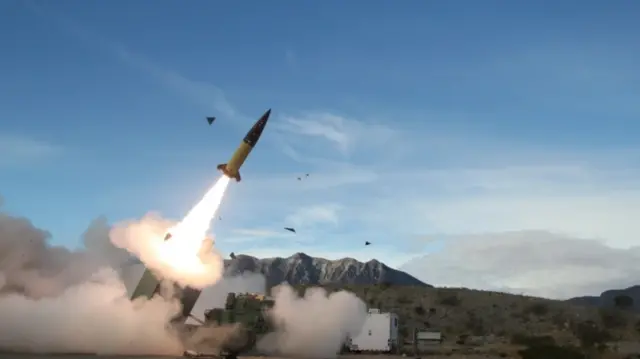Kyiv responds to foreign embassies' temporary closurespublished at 14:00 GMT 20 November 2024
We can now bring you a response from the Ukrainian foreign ministry, which comes after some countries announced earlier today they would temporarily be closing their embassies in Kyiv.
For the US embassy, it cited "specific information of a potential significant air attack" in the capital for its temporary closure.
The Ukrainian foreign ministry says that attack threats like these are "unfortunately" a daily reality for the country, adding the threat today is "as relevant as on the previous thousand days".
Spokesperson Heorhii Tykhyi says: "We believe that it would be right for partners to react on the 1001st day in the same way as on the previous thousand days, without any additional information pressure."
Ukrainian citizens should "remain vigilant" and not ignore air raid sirens, he says, adding "as always with the threat of Russian missile attack".
The US, Spain, Italy and Greece all announced temporary closures today, but Spain's embassy has since reopened.
